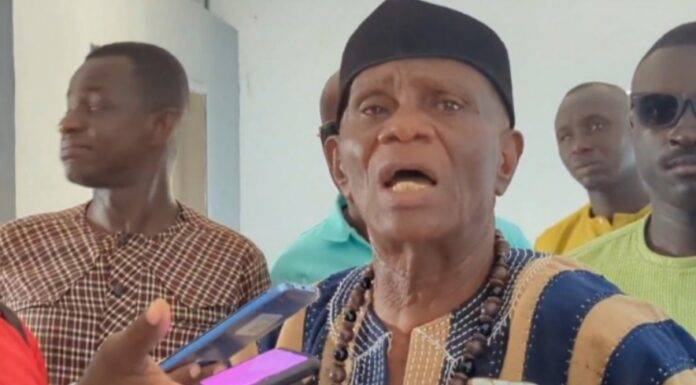Nkwanta’s Heartbreak: A Town in Silence
I was chatting with my auntie last night, her voice low over the phone as she described the eerie quiet of Nkwanta, her hometown in the Oti Region. “It’s like a ghost town now,” she said, and I could hear the weight in her words. Seven people dead in a week, caught in a spiral of ethnic clashes between the Akyode and Challa communities. Seven lives—gone. I felt a knot in my chest, picturing the vibrant market I visited as a kid, now deserted, shops shuttered, streets empty. Ever been somewhere so full of life, only to hear it’s fallen silent?
There’s this heavy mix of grief and disbelief that clings to this story. The violence kicked off on June 25, 2025, sparked by a dispute over a traditional yam festival ritual, of all things. Akyode elders were performing their annual libation at the market when tensions with the Challa community boiled over, guns were drawn, and lives were lost. Among them, a final-year student at Nkwanta Senior High School, struck by a stray bullet while on campus. Can you imagine? A kid, studying for exams, dreaming of a future, gone in a moment. Two female students were also shot, thankfully treated and released, but the scars—physical and not—will linger.
My cousin, who teaches in a nearby town, messaged me about the chaos. “We sent the kids home with police escorts,” he said, his words clipped, like he was still processing it. Schools—public, private, all of them—are shut down now. The Ghana Education Service didn’t waste time, closing Nkwanta SHS and others to keep students safe. I think about my own school days, the laughter in the hallways, the safety we took for granted. Now, Nkwanta’s kids are scattered, some families fleeing entirely, leaving behind homes and livelihoods. The town’s bank, GCB, is closed indefinitely. Shops are locked. Even the air feels still.
But it’s not just the silence that gets you—it’s the why. This isn’t new. Nkwanta’s seen clashes before, between Akyode, Challa, and Adele communities, often over land or traditions. Last year, 13 died in similar violence, and the wounds never really healed. I saw a post on X where someone called it “a cycle of pain,” and that stuck with me. My neighbor, a nurse who’s worked in conflict zones, says these disputes are like old scars that keep splitting open. “It’s not just about yams,” she told me. “It’s pride, history, mistrust.” The Oti Regional Minister, John Kwadwo Gyapong, is pleading for peace, but with a chief’s house burned in Bonakye and gunshots still echoing, it feels like a long road ahead.
I keep wondering about those families—the ones who lost sons, daughters, brothers. The chief of Akyode, Nana Sago Akiaasen I, spoke out, his voice breaking as he demanded justice for three students killed. “Our children, our future,” he called them. I can’t shake that image: a community leader, mourning, begging for answers. The police have arrested 10 suspects, sent to Accra for questioning, but one’s still on the run. A curfew’s in place, dusk to dawn. Security’s tight, but is it enough? My friend Kwesi, who grew up in Nkwanta, says the town feels like it’s holding its breath, waiting for the next spark.
So, here I am, staring at my now-cold tea, thinking about Nkwanta’s empty streets. The government’s talking peace, mediation, but words feel thin when blood’s been spilled. I want to believe in healing, in a day when Nkwanta’s market buzzes again, kids run to school, and families don’t live in fear. But it’s hard, isn’t it? When trust is broken, when history keeps repeating. What does it take to end a cycle like this? Are we strong enough to choose peace over pain, or are we just waiting for Nkwanta’s next heartbreak?



